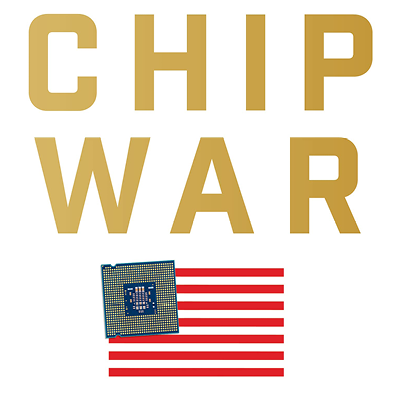By Program

Chip War: The Fight for the World’s Most Critical Technology
November 3, 2022 | 12:15 - 1:30 pm | Bass Lecture Hall, LBJ School
On Thursday, November 3, the Strauss Center and Clements Center for National Security hosted Chris Miller, Assistant Professor of International History at the Fletcher School of Law and Diplomacy at Tufts University, for a book talk on his upcoming release Chip War: The Fight for the World’s Most Critical Technology.
Miller began the conversation by illustrating the historical trend of growing demand for better computing technology, then went into detail describing the chip manufacturing process, demonstrating the expense, interdependency, and complexity of chip production and highlighting how few firms (and countries) control the entire industry.
The focus shifted to Taiwan, which Miller quoted as being the home location for one company that produces 90% of processing chips globally. He highlighted Taiwan Semiconductor Manufacturing Company (TSMC), and its founder Morris Chang, as names to know. Miller briefly went back to the history, showing how Taiwan became the center of the world’s chip manufacturing, placing great emphasis on the contributions made by Chang and his company.
Miller spent the remainder of his talk delineating the power dynamics at play in the international arena that serve as the backdrop for the global Chip War. He drew attention to the fact that China, being crucially reliant upon importing chips from Taiwan, has no viable way to source advanced chip technology without the approval of the United States. He also mentioned that because South Korea and Taiwan are dependent on the importation tools necessary to manufacture chips from the U.S., Japan, and Netherlands, the U.S. has a major advantage in this Chip War.
Miller claimed that there is no tech that will be more crucial for the future of defense power than semiconductors and, as a result, China is investing more money than any other nation in trying to domesticate the technology that it lacks. The U.S. in response is restricting the transfer of highly valued chips to China, which are the chips mostly used for advancing artificial intelligence. As long as China fails to domestically replicate this technology, it will struggle to harness the transistors needed to process large amounts of data.
In conclusion, said Miller, what matters is the tremendous need for and increase of transistors that makes modern tech possible. He ended the talk by encouraging the audience to think more about semiconductors and the role they play in our modern political world and engaged with the audience in a lively question and answer session to wrap up his visit.
Biography
Chris Miller is Assistant Professor of International History at The Fletcher School of Law and Diplomacy. He has previously served as the Associate Director of the Brady-Johnson Program in Grand Strategy at Yale, a lecturer at the New Economic School in Moscow, a visiting researcher at the Carnegie Moscow Center, a research associate at the Brookings Institution, and as a fellow at the German Marshall Fund’s Transatlantic Academy. His first book, “The Struggle to Save the Soviet Economy: Mikhail Gorbachev and the Collapse of the USSR,” was published in 2016. His second book, “Putinomics: Power and Money in Resurgent Russia,” was published in March 2018. He received his PhD and MA from Yale University and his BA in history from Harvard University. For more information, see www.christophermiller.net.
For more information on this event, contact Elizabeth Doughtie at [email protected].


